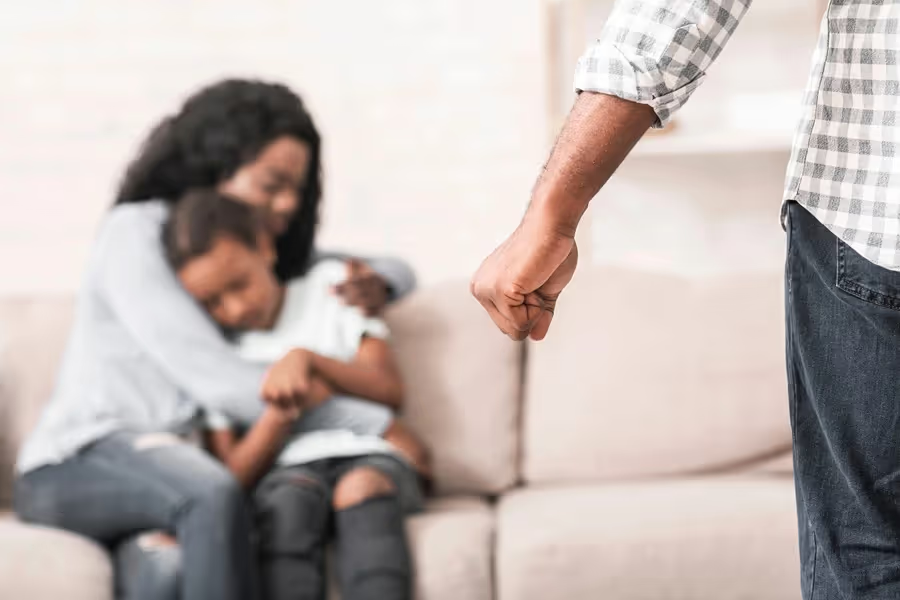Domestic violence allegations can damage your reputation, threaten your freedom, and disrupt your family. In California, where domestic violence laws are particularly stringent, your entire future is at stake.
A 2019 report by a Sacramento County multidisciplinary team reveals that people of all ages, races, genders, and socioeconomic statuses are touched by accusations of domestic violence. In 2023, law enforcement officers in Sacramento County responded to over 9,000 domestic violence calls.
An accusation or even an arrest doesn’t equate to guilt. If you’ve been falsely accused, your next steps can change the outcome of your case and your entire future. Hopper Hopper & Strebe LLP explains what to expect if you've been falsely accused of domestic violence in California, including your legal rights and potential defenses.
Immediate Actions After a False Accusation
A false accusation of domestic violence can wreak havoc with your emotions, but staying calm and making clearheaded moves is crucial. Here's what you must do.
Remain Silent
Law enforcement officers are experts in making suspects talk. They may try to get you to explain your side — and it might seem like a good idea at the time. However, anything you say, even if you believe it’s in your own defense, can be misinterpreted or used against you in court.
Politely inform officers you won't answer questions without your attorney present. This is your constitutional right.
Secure Legal Representation

Get in touch with an attorney as soon as possible. An experienced domestic violence defense attorney can immediately work to protect your rights, starting with handling communications with the police. They’ll begin gathering evidence and develop a strong defense strategy tailored to your unique situation.
Avoid All Contact with the Accuser
Do not contact the accuser even if you believe a conversation could resolve the situation. Any contact poses a risk of escalation. It could weaken your case, lead to further allegations, and even violate a protective order. Any communications about your children or other necessary matters should be done only through your attorney or via court-approved channels.
Preserve and Gather Evidence
Create a detailed timeline of events leading up to and following the accusation, including the names and contact information of anyone who can support your account. Save screenshots or copies of all relevant communications, including texts, emails, and social media. Keep this information organized in a dedicated binder or digital folder, ready to share with your attorney.
Comply with Restraining and Protective Orders
If you are notified of a protective order or restraining order, read it carefully, understand all restrictions, and follow them completely. In turn, speak to your attorney about whether filing a restraining order against the accuser might be appropriate.
Document your full compliance with any orders. Immediately notify your attorney if the accuser attempts to contact you in violation of a restraining order, even if the accuser filed that order. Remaining in contact could harm your defense.
Seek Emotional Support
False accusations are immensely stressful. Lean on your support network, including family, friends, or a therapist, during this challenging time.
Penalties for Domestic Violence in California
A domestic violence charge in California is serious. The penalties are significant and can dramatically impact your life. The severity of the potential consequences hinges on whether the charge is a misdemeanor or a felony, along with other factors.
What to Expect When You’ve Been Accused of Domestic Violence
If you understand the next steps in your case, you can better prepare yourself for what’s to come. Here’s a general overview in eight stages:
- Investigation phase: Law enforcement officers gather evidence and statements from all parties involved.
- Charging decision: The district attorney decides whether to file charges based on the evidence gathered.
- Arraignment: If you are formally charged, you'll enter a plea of guilty, not guilty, or no contest.
- Pretrial motions: Your attorney may file motions to suppress evidence, dismiss charges, or challenge other aspects of the case.
- Discovery: Both sides exchange evidence and information.
- Plea negotiations: Your attorney may negotiate a plea bargain to avoid the worst-case scenario of a conviction at trial.
- Trial: If a plea agreement isn't reached, your case can go to trial.
- Sentencing or dismissal: The outcome of the trial, whether a conviction, acquittal, or dismissal, determines the next steps.
If there is strong evidence of your innocence, your attorney will work to get the case dismissed in the early stages of this process.
Building Your Defense: Key Strategies Against False Accusations
A strong defense against false domestic violence accusations requires a multipronged approach. Your attorney may employ several key strategies.
Challenging the Accuser's Credibility
Your attorney will investigate the accuser's background, looking for inconsistencies in their statements, a history of false accusations, and potential motives, such as revenge, child custody, or financial gain. Witness testimony that contradicts the accuser’s story can be a tipping point.
Presenting an Alibi
A solid alibi establishes your whereabouts at the time of the alleged incident. Evidence that backs up your alibi may include witness testimony, employment records, security camera footage, and cell phone records.
Highlighting Inconsistencies
False accusations often contain inconsistencies. Your attorney will analyze the accuser's narrative, comparing it to the verified facts. This might involve looking for discrepancies in the accuser’s story and presenting evidence that supports your good character and discredits the accuser.
Calling on Witnesses
Testimony from colleagues, employers, friends, and community leaders who know you well can counter the accusations and demonstrate your true character. In complex cases, forensic experts, psychologists specializing in false accusations, and medical professionals can provide crucial insights and analyses.
Challenging Evidence
Your attorney will ensure all evidence is collected and preserved according to legal standards, maintaining the chain of custody and verifying the authenticity of digital evidence.
The Emotional and Social Fallout of False Accusations

False accusations can inflict significant emotional and social damage. Prioritizing your well-being is essential. Here are some tips for making it through a false accusation.
Find Emotional Support
Maintain strong connections with supportive loved ones. Consider seeking a professional therapist who specializes in false accusations or joining a support group. Finally, prioritize self-care practices to manage stress and anxiety.
Protect Your Reputation
False accusations can harm your community and professional standing. Encourage loved ones to correct misinformation discreetly, and maintain a professional demeanor at work. However, you should avoid making comments about the case. Don’t make social media posts regarding the accusations, and consult your attorney before discussing them publicly.
Plan for the Future
After the case is over, talk to your attorney about expungement options. Try to establish healthy boundaries in future relationships, and document your interactions in potentially volatile situations. Continue to put your children’s best interests first in custody arrangements.
Hopper Hopper & Strebe LLP: Your Domestic Violence Defense Attorneys in Sacramento
Being falsely accused of domestic violence is an unexpected blow, but with the right legal approach and support, you can protect your rights and reputation.
At Hopper Hopper & Strebe LLP, our family law and domestic violence defense attorneys will advocate for you, providing strategic and compassionate representation. If you're facing false domestic violence accusations in Sacramento, Placer, or surrounding Northern California counties, contact us for a free consultation.





.avif)
.avif)


